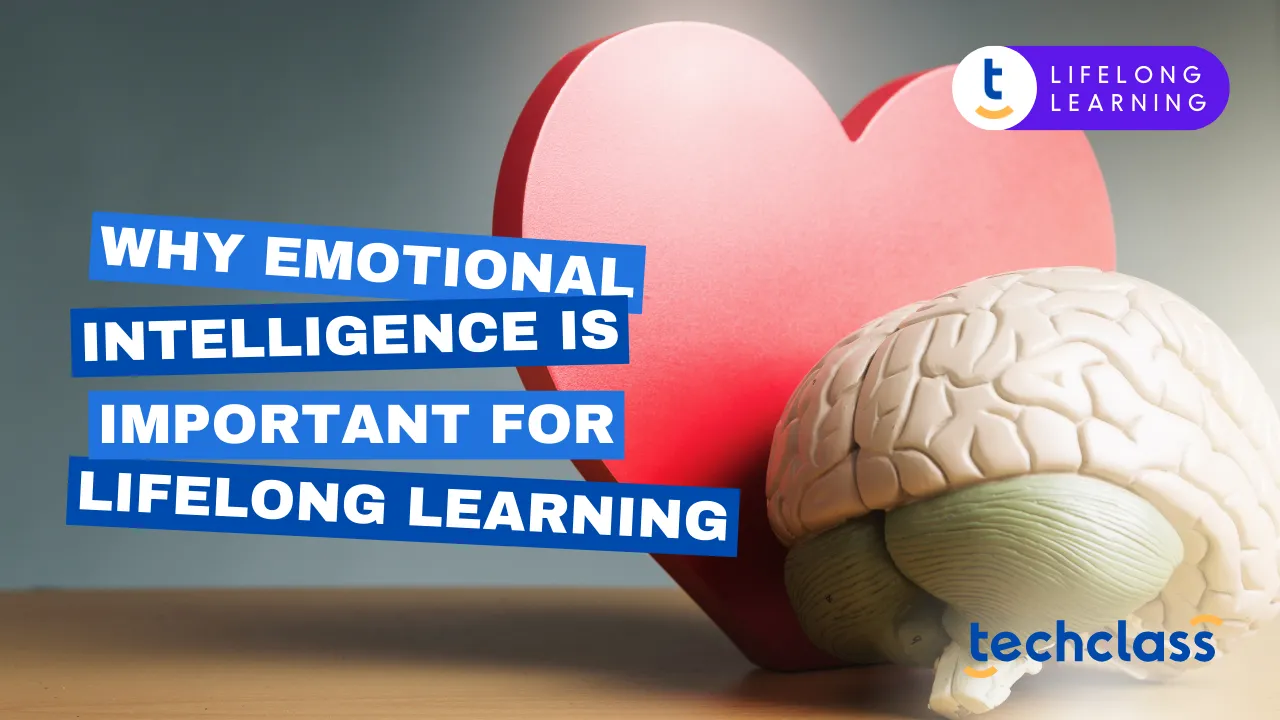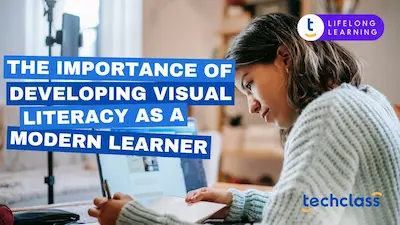
“While being book-smart might help you pass tests, emotional intelligence prepares you for the real world by being aware of the feelings of others as well as your own feelings.” - Hannah Owens
Here's the truth! When it comes to learning, emotional intelligence is often the last thing we think about as learners. However, did you know that it has a significant impact on our educational performance? And that's the reason why it's essential to educate yourself about emotional intelligence and apply strategies to boost it.
In this article, you will gain a thorough understanding of emotional intelligence and learn practical ways to boost it for better learning outcomes.
The capacity to recognize, utilize, and control your own emotions in order to reduce stress, communicate clearly, empathize with others, overcome obstacles, and diffuse conflict is known as emotional intelligence, or emotional quotient, or EQ.
Although it is debatable whether emotional intelligence is an ability that you are born with or something that can be learned from an outer perspective, in reality, emotional intelligence is more than just a trait you innately have or don't have. With enough effort and dedication, it is possible to acquire the abilities required to raise your emotional intelligence.
Now, touching on that fact brings us to an American psychologist and science journalist named Daniel Goleman. He argued that, unlike IQ, which is relatively stable throughout a person's life, EQ can be enhanced through practice and training. According to his EQ theory, there are five main components of EI. They are:
As mentioned in the beginning, EQ can profoundly impact both the learning process and outcomes. Take a look at the following scenarios to understand that:
When receiving a poor grade, an emotionally intelligent learner tries to recognize their disappointment and reflect on what went wrong. Then, they set a plan to improve, such as studying more or seeking help from a tutor. Conversely, an emotionally less aware learner reacts with frustration or anger, blaming the teacher or external factors. Also, they might refrain from discussing the grade with the teacher and fail to seek constructive feedback.
In a group project, an emotionally intelligent learner communicates effectively, listens to others, and resolves conflicts smoothly because they understand the emotions and perspectives of their group members. However, emotionally less aware learners communicate poorly because they need help understanding others' feelings, which leads to conflicts and misunderstandings. Moreover, they may become demotivated and disengaged with group tasks.
Preparing for an exam is important for any learner, and each learner takes it in different ways. When it comes to an emotionally intelligent learner, they recognize their anxiety and use relaxation techniques to stay calm. At the same time, an emotionally less aware learner feels overwhelmed by stress and lets it disrupt their study routine.
These scenarios show that being an emotionally intelligent learner lets the learner be highly self-aware and understand their emotions and how they affect their learning. They can regulate their emotions and impulses to be more focused and organized.
Because of the fact that emotionally intelligent learners are empathetic, they can understand and relate to the emotions of their peers and teachers. Furthermore, they are the learners who are more likely to build positive relationships with their peers and instructors.
But what are the characteristics of an emotionally intelligent lifelong learner in a learning environment that help you spot one when you see them?
You already know that emotional intelligence is something that you can improve with practice. Let’s see how.
Think for a second. When you are in a lesson or watching a video lesson, do you listen to what the other person is explaining, or do you just hear it? If the answer is you just hear and do not pay attention, you need to practice active listening. Active listening is an approach of listening and responding to someone else that enhances mutual understanding. It is a communication skill that goes beyond just hearing what they say. The next time when you are listening to someone, whether it’s your instructor or manager, follow the following steps:
Empathy is the capacity to experience other people's emotions, see things from their perspective, and put oneself in their place. It basically involves putting oneself in another person's shoes and experiencing their feelings. To develop this skill, imagine how you’d feel if you were in another person’s situation. Consider their background, experiences, and emotions to gain a deeper understanding of their viewpoint. Reflect on similar experiences you've had and how you felt to empathize with their feelings.
Our emotions and values are interconnected. Our values shape our emotional reactions, and they also affect how we express and share those values with others. For example, when we come across circumstances that align with our beliefs about caring for others, we may experience sentiments of empathy and compassion.
To infuse your emotions with values, first identify your core values and reflect on how they align with your emotions and reactions. When you experience strong emotions, pause to consider how acting in line with your values can guide your response. This conscious alignment ensures your actions and decisions are both emotionally intelligent and value-driven.
Whenever you look for strategies to improve yourself as a person, you must have noticed that journaling comes on top of suggestions. This is because journaling is a truly effective way of understanding oneself and collecting oneself together for the better. Writing down your thoughts, feelings, experiences, and reflections regularly is called journaling. It can be typed, sketched, or written. You can do it on your computer or paper. It's an easy, affordable method of enhancing your mental well-being as well as emotional intelligence.
The fundamental human capacity to be totally present, aware of our surroundings and our actions, and to avoid becoming too reactive or overwhelmed by them is known as mindfulness.
Practicing mindfulness improves your emotional intelligence by increasing your self-awareness and helping you stay present in the moment. This heightened awareness allows you to recognize and understand your emotions more clearly. Additionally, it reduces stress and gives you a calm and balanced mindset, which aids in learning. The best way to practice mindfulness is to include meditation in your daily routine.
Always remember emotional intelligence is not a fixed trait but a set of skills that can be cultivated with practice and dedication. As you continue on your educational journey, focus on blending these strategies into your life to become a more emotionally intelligent and effective learner.


